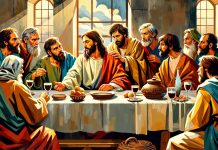For the average punter, rugby league had its beginnings in a school at Rugby, England, when one William Webb Ellis, “with fine disregard for the rules of football as played in his time at Rugby school, first took the ball in his arms and ran with it, thus originating the distinctive feature of the rugby game.”
It’s been suggested they were playing soccer, and, given the boring score lines in that game, Ellis’s action comes as no surprise to me. Not to worry, though, the tale is fiction, a myth, with little evidence that it ever happened, not the least that the game of soccer had not then, in 1823, been invented, let alone played in British schools. Regardless, it remains rugby legend so much so that the Rugby World Cup silverware for the Union version of the game is named the William Webb Ellis Trophy.
Unhindered by truth, the market town of Rugby, Warwickshire, has erected a commemorative statue dedicated to the game, which in 1997 cost a handsome £40,000. The bronze statue of a boy running with a rugby ball stands adjacent to the esteemed school of Rugby and opposite what is now the Webb Ellis Museum, which in the nineteenth century was a ball-manufacturing establishment.
It’s ironic that, for a game so law-bound 200 years on, it should have begun with the alleged breaking of the law against handling the ball! The two rugby codes, along with NFL football in the USA, are among the most rule-driven and technical games in existence, where, in League at least, a serious infraction can result in a player being sent to the aptly named “sin bin” for a season. This in effect makes surreptitious rule-breaking or playing the “tech foul” as your game strategy a risky strategy.
This is not unlike real life, which also requires a set of laws for equity and fairness for all. In the Judeo-Christian tradition, these are the Bible’s Ten Commandments as outlined in Exodus 20 and Leviticus 5, although its tenets are universal. According to Australia’s now-infamous League practitioner, Israel Folau, basing his view on the biblical reference Corinthians 6:9-10, unrepentant law-breakers will be sin-binned for eternity. His now-infamous Instagram post reads: Warning: Drunks, Homosexuals, Adulterers, Liars, Fornicators, Thieves, Atheists, Idolaters, hell awaits you. Repent! Only Jesus Saves. Indeed, Folau warns us, the consequences of breaking the laws of life are severe and enduring.
Off the sports field, we live without any clearly marked sidelines or video replays; there’s no referee watching our every move or keeping us within life’s touchlines. It’s up to us individually to decide how we play the game. But as humans we tend to wander where we will—we need clear rules for living and protecting relationships. Many live in ignorance of those rules, some conveniently ignore them, while others act in outright defiance of them.
The recently freed slaves in the biblical book of Exodus, within earshot of the commandment-giving God on nearby Mount Sinai, chose to make and worship a golden idol. This was surprising, because they’d just made a well-intentioned pledge to God, saying, “We will do everything the Lord has said” (Exodus 19:8). But yielding to their human inclinations, they cast themselves the idol, and danced around it in a shameful orgy.
But consider: we’ve all made resolutions and within days forgotten them. According to an Australian YouGov survey of the top New Year’s resolutions for 2018, we planned to eat healthier, get more exercise, save more money…. How did that work out for you?
The Bible’s multi-millennium-long narrative, charting the history of the Jewish nation’s hot-and-cold relationship with God, is evidence of our human inability to obey God’s law. Viewed in isolation, this is discouraging, for we, with the best of motives and intentions, might also plan to do “everything the Lord has said,” but fail. Even the great apostle Paul struggled with this, writing: “We know that the law is spiritual; but I am unspiritual, sold as a slave to sin. I do not understand what I do. For what I want to do I do not do, but what I hate I do” (Romans 7:14-15).
So how does one deal with such an insoluble dilemma?
An episode in the life of King David, second king of Israel, is instructive in this (see 2 Samuel 11 and compare with Exodus 20:1–17.) To put it diplomatically, King David had a “moral lapse”: his sin, like many today, was that of adultery. But in this singular act he broke every one of the Ten Commandments. It began with coveting (Commandment #10) his neighbour’s wife, Bathsheba, wife of Uriah the Hittite; the theft (Commandment #8) of his most loyal servant’s “property” (as women were viewed in that culture) moved directly into adultery (Commandment #7); generally disrespected his parents (Commandment #5) in forsaking all they’d taught him; all of which was followed by the inevitable cover-up (Commandment #9) of his conspiracy to murder (Commandment #6). Later, David would recognise that his sins were, ultimately, acts against God’s sovereignty (see Psalm 51:4)—wilful, selfish idolatry, an insult to God’s name and His superiority as Creator (Commandments #1 to #4).
But for David—and herein lieth the lesson—this was not the end of the sad tale, for when confronted with his law-breaking by the prophet Nathan, and realising the enormity of what he had done, with a broken spirit David confessed his wrongdoing, crying a prayer of repentance: “I know my transgressions, and my sin is always before me” (Psalm 51:3), offering as restitution his broken and contrite heart (verse 17).
Psalm 51 is a step-by-step picture of how we, with God, deal with our human inability in law-keeping: confession allows forgiveness; and forgiveness, grace; and grace, reconciliation; and reconciliation, reinstatement, such that in the end a lying, fornicating murderer can be characterised by God as “a man after my own heart; [who] will do everything I want him to do” (Acts 13:22).
In the only book where it really counts, heaven’s Book of Life, David’s sin had been expunged, blotted out as if never committed. That’s called grace. And grace finds its way into many a strange place.
Stan Smith was an extremely violent man, one of an infamous threesome comprising Australia’s most notorious criminal gang of the second half of the twentieth century. In a partnership with criminals Lennie McPherson and George Freeman, Smith was the muscle. He abhorred drugs, but in the post ’60s era moved into the lucrative marijuana business, amassing a fortune. On Australia’s east coast, the three ruled the underworld. Protected by a corrupt police force, they were implicated in the murders of dozens of criminal competitors. Smith was himself linked to some 25 shootings and 15 murders, yet spent only a small amount of time in prison. But, by all accounts, he was greatly affected by the loss of his son to heroin and, as the story has it, murdered his son’s supplier in a fit of rage and hurt, repeatedly running his car over the man as he lay unconscious on the road where Smith had felled him.
Then in 2003, abandoning his life of crime, Stan “The Man” Smith made an amazing U-turn, becoming a “Man of God.” A member of the Evangel Bible Church, Sydney, had given him a Christian devotional book in 1996 and the seed planted took root. No one can know for sure if Smith’s conversion was legitimate—insiders believed it was, however. Something had happened and, weeping and repentant, he was baptised—fully immersed—rising from the water cleansed of his past deeds, a born-again Christian. Until his death in 2010, he attended Bible study, sang in a church choir and distributed religious tracts, as well as working for charities in Sydney’s seedy Kings Cross, his former stamping ground.
In accepting the death of Jesus for his sins, like King David, for the purposes of heaven, Smith’s former sins never existed and eternity became his. For, as the Bible writer explains, “Christ was sacrificed once to take away the sins of many; and he will appear a second time, not to bear sin, but to bring salvation to those who are waiting for him” (Hebrews 9:28).
Lee Dunstan served as editor of Signs of the Times for 25 years between 1993 and 2018. He currently heads up Christian Services for the Blind and Hearing Impaired. A version of this article first appeared on the Signs of the Times Australia/New Zealand website and is republished with permission.



















